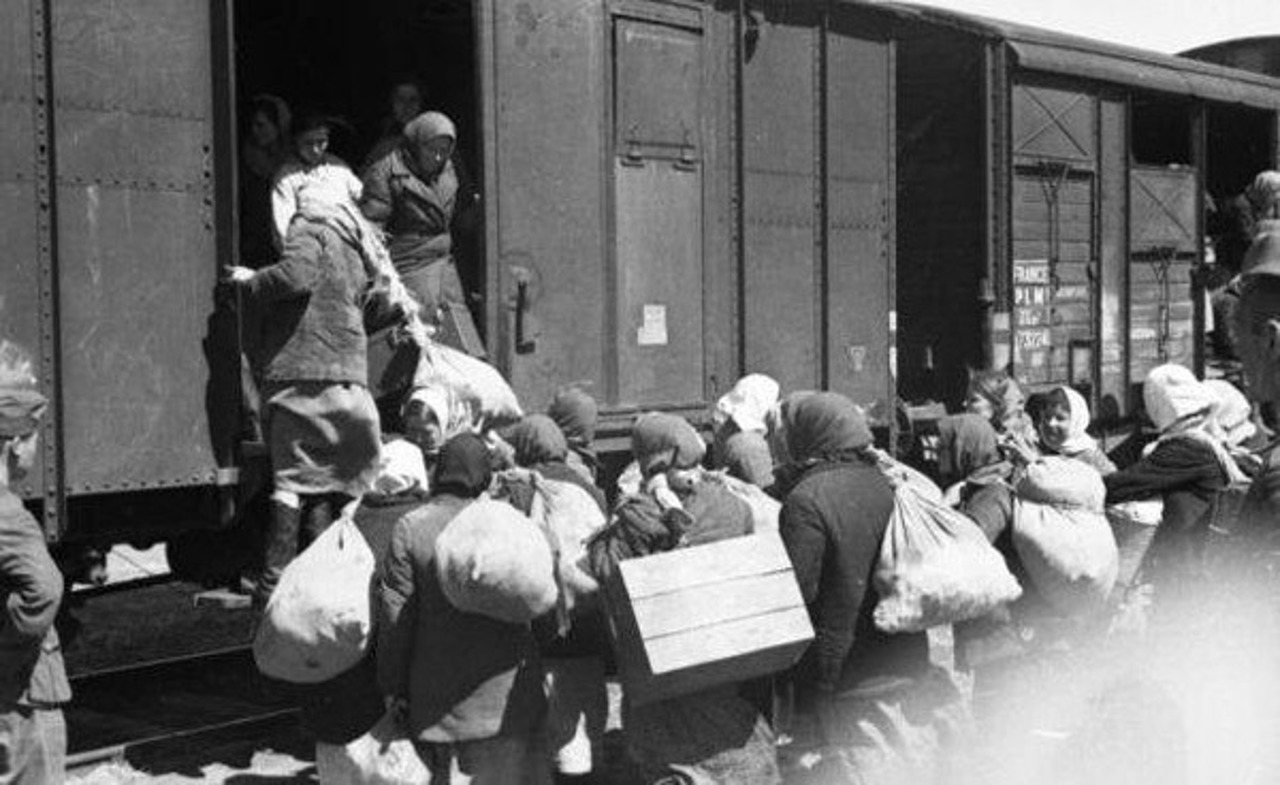
Stalinist Deportations in Bessarabia // Moldovan historian says those who cared most about language, history were deported to Siberia, Kazakhstan
Over 22,000 people from Bessarabia in June 1941 were torn from their homes and sent to Siberia and Kazakhstan, in one of the most violent episodes of the Soviet occupation. Intellectuals, officials, priests and wealthy peasants became 'enemies of the people' just for thinking freely, owning land or speaking Romanian. Historian Artur Lescu from WatchDog civil society community describes these deportations as a form of slow extermination, aimed at erasing every trace of national identity.
‘’The first to be deported were 22,000 people: intellectuals, landowners, mayors, teachers, students, small merchants. The goal was to make the Sovietization process of the newly occupied territory as swift as possible. To erase any memory that the territory between the Prut and the Dniester was an inalienable part of another state.’’
‘’If they could, the Soviet power would wipe out all the inhabitants of Bessarabia, bringing new people here. This is the essence of totalitarianism, creating enemies and the eternal fight against these imaginary enemies. Here, in Bessarabia, the intellectuals were the first to be listed as enemies.’’
According to the historian, ‘’the essence of totalitarianism is the perpetual creation of imaginary enemies.’’ In Bessarabia, the Soviet regime first found them among intellectuals, then among peasants who refused collectivization.
Lescu points out that for Bessarabia, the end of the Second World War did not mean peace, but the beginning of a series of tragedies: the organized famine of 1946, the waves of deportations in 1949 and 1951 and the constant terror against the population.
Moldovans invited to donate blood in national campaign
Moldova opens door to digital nomads
Liaison prosecutor of Moldova to Eurojust to be selected based on competition organized by Superior Council of Prosecutors
More schools in Moldovan capital receive new computers
Future technologies to be studied in south Moldova; new vocational college to soon start working in Comrat
Moldovan authorities urge citizens to avoid any travel to Israel
PHOTO GALLERY // Blood Donors - Community Heroes
European safety standards for passenger ships to be implemented in Moldova
World Blood Donor Day // Speaker calls for solidarity
Video // Moldovan parliament speaker conveys message on Medical Worker's and Pharmacist's Day
Moldovan Foreign Affairs Ministry says Moldova watches with concern escalation of tensions in Middle East
Moldova's Ambassador to Israel says no victims or injuries among Moldovan citizens in Israel
Seven student dormitories of Moldova to be fully renovated; investment reaches 15 million euros
Moldovan PM attends eighth edition of Neurologists' Congress
New national assessment report highlights Moldova's progress made in green transition
Moldova's Ambassador to Israel urges Moldovan citizens in Israel to follow security instructions issued by authorities
Better conditions for education for 13,000 students of Moldova: 30 million euros to be invested in modernizing more schools
NeuroDiaspora.MD network launched in Chisinau; Moldovan PM urges all professionals to cooperate
Governor of National Bank of Moldova says country becomes regional model of stability, innovation, European integration
Energy ministry official says Moldova develops energy storage capacities for more balanced, sustainable energy system
Moldovan police open criminal file desecration of graves at Chisinau-based Jewish Cemetery
Moldovan PM at Europa Wachau Forum: "We Contribute with Hard Work and Deep Trust in the Power of a Solidary Europe"
Investment worth over 290 million lei in Balti: abandoned hall to be transformed into modern food production factory
Moldovan parliament speaker condemns vandalism of gravestones at Jewish Cemetery
Moldova's president invites Moldovans from Germany to meetings



